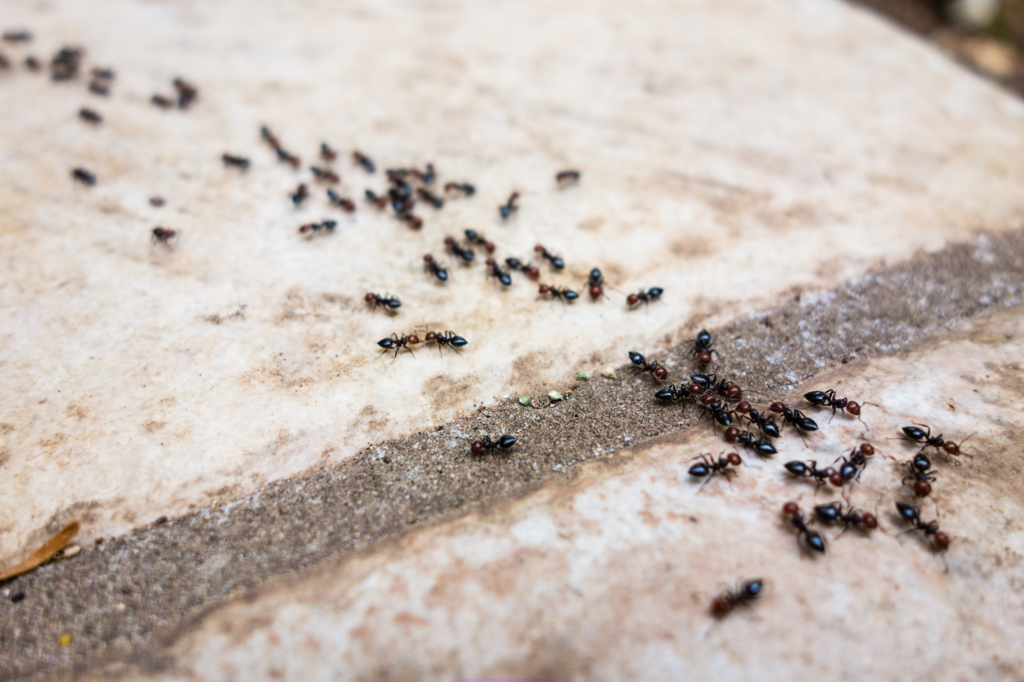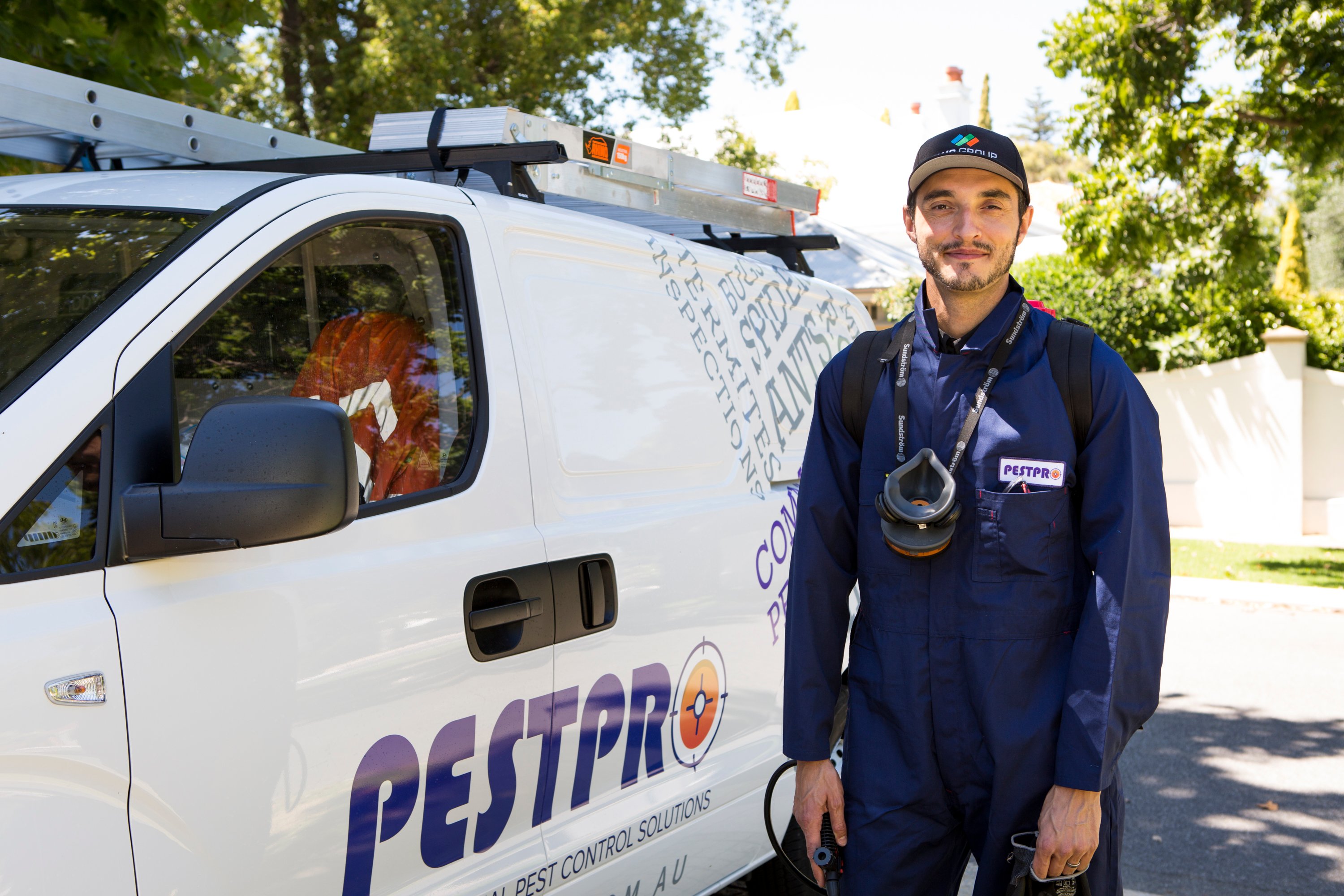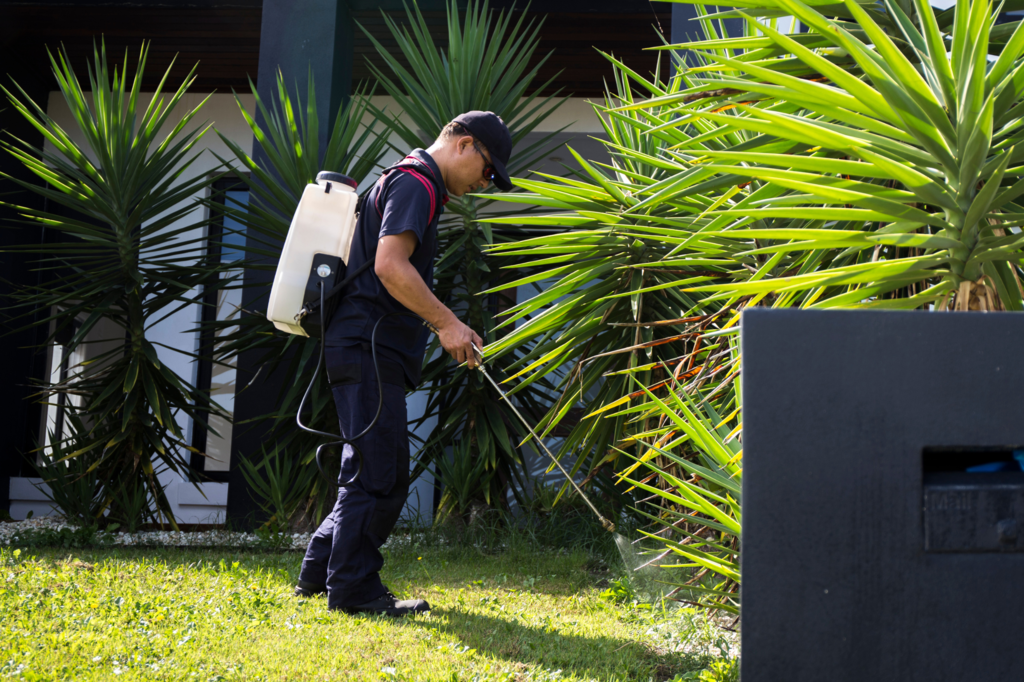Summer in Australia brings many good things, including beach days, clear blue skies, and outdoor barbeques. However, it can also bring some unwanted guests into your home or property. Pests can be risky business, carrying bacteria and disease, causing damage to your property and being an overall nuisance. It’s important you know what pests to expect this summer, and how to keep these unwanted visitors out of your home.
Cockroaches
Cockroaches are very typical pests in Australia, particularly in the summertime. They are most likely to be found in damp places, as they’re looking for warmth. So, you should check in dark areas of kitchen cabinets, the back of bathroom fixtures, drains and the basement or attic. They can be incredibly hard to find because they can hide almost anywhere and eat anything.
It is recommended to eradicate them as they can spread diseases when they come in contact with food and are good at transmitting salmonella and gastroenteritis. Their droppings can also transmit diseases, including eczema and asthma to children. You’ll know they’re there if you see small brown marks.
What To Do
- Keep your home cool
- Clean your home regularly
- Seal all food if possible
- Check for possible access points
Termites
Termites are a very expensive pest to deal with if they choose to pick on your property. On average, they cause damage accumulating to over $500 million annually. Termites are often found where it is warm making it important to keep your eye out during the summer months. Each species of termite leaves different signs of infestation which can often be missed by the untrained eye. A key part of spotting these tricky insects is to look out for termite shelter tubes. These are brown tubes that termites use for protection and are often seen along walls. They also leave their droppings in large piles in and around your home.
Termite infestation should be considered an urgent problem as they can cause considerable and expensive damage to your property. Once a colony has settled, they can lay up to 2000 eggs each day, so if you don’t act quickly they can become a major problem in your household. Prevention is always better than reactive measures so ensure to always keep termite management in mind, or reach out to professionals like Pestpro’s trained technicians, for a yearly inspection to protect your property or home.
What To Do
Termites are a serious threat to your property so we would never recommend a cheap and easy, DIY approach. Prevention is always better than reactive measures so ensure to always keep termite management in mind, or reach out to professionals like Pestpro’s trained technicians, for a yearly inspection to protect your property or home.
Spiders
In Australia, we have incredible wildlife, but we are also home to more than 2000 spider species, with some of them being the most venomous in the world. If one bites you, it can be potentially fatal if not treated and leave you in extreme pain. These pests can be found in wardrobes, bookcases, and air vents. They enjoy dark spaces and use their webs to capture their food. Spiders can live for many years and lay their eggs in sacs during the warmer months. They lay up to 3000 eggs and can very easily infest your home.
What to do
- Regularly check and remove spider webs from your house and garden
- Control overhanging and unruly foliage near and directly adjacent to your home
- Fill in the gaps between walls and under the doors to prevent spiders from moving in
Ants
These household pests can be a nuisance, but the good news is that they’re not life-threatening. In Australia, there are over 1000 ant species, and although sometimes they can be aggressive and give a painful bite, they won’t cause too much harm unless allergic. Some common species include Carpenter ants, Coastal Brown ants and Black House ants.
Ants are known to invade your home, and some do carry fungal and bacterial organisms that might cause diseases. They love warm environments and are often in search of sweets and proteins. They build their colony when they find a reliable food source, and they have the potential to destroy your electrical wiring and any plastic appliances.
What To Do
- Keep all food sealed tightly
- Clear up any sticky residues on worktops and crumbs - especially in hard-to-reach areas such as in your pantry or under your fridge
- Track down where they are coming in and seal off the entry point

Fleas
Fleas are tiny and can be a menace when they enter your home. They tend to attach themselves to pets in the house and then, potentially, to any person in the house. And when they enter your home, it is extremely challenging to get them to leave. A single flea lays many eggs, and one little problem can turn into a disaster very quickly. A flea infestation can bring about severe discomfort, scratches, and itchiness. They even can lead to the transmission of parasites like tapeworms when they bite you or your pet.
What To Do
- Limit contact with wild and stray animals
- Bathe and brush your pets regularly
- Use natural flea repellents such as citronella, eucalyptus, peppermint, and geraniol
- Vacuum and regularly wash carpets
- Wash pet bedding weekly, ideally at above 50°C.
Wasps and Bees
Effective bee removal is crucial because wasp nests and bee hives present a risk to those around. The Paper Nest Wasps are the most prevalent and most venomous wasps. Paper Wasps can sting multiple times, thus it is imperative to get rid of the wasps using the most efficient and secure wasp and bee removal Perth has to offer if a nest is adjacent to your house or commercial property.
For those who may be allergic to stings, being stung by a wasp or bee is a terrible experience that poses a serious risk to their health. However, by exercising common sense when outdoors and making sure that wasp or bee nests are appropriately handled, these hazards can be minimised.
What To Do
- If your problem is wasps, you can grow plants that repel them, such as thyme and lemongrass
- Never go near a nest of bees or wasps since they tend to get violent when defending the nest
- If you notice a swarm, keep away and consider calling a trained technician
Flies
Flies may be one of the most annoying pests in Australia. They should be treated the same as mosquitos and cockroaches. They can be a health risk to humans as they can spread diseases such as salmonella and E. coli. Others can cause painful bites like a horse fly. You know if you have a fly infestation if you see larvae in your home. It is best to install fly screens, keep all places clean and ensure bin seals are tightly fixed.
What To Do
- Ensure your windows, house vents and doors are sealed properly and free from holes or other damage.
- Use a rubbish bin with a tight-fitting lid and take the bag out as soon as it is full.
- Use various essential oils to keep away flies, including lavender, eucalyptus, peppermint, and lemongrass, as these scents deter flies
Mosquitos
It’s easy to know when these pests are around because you can hear their high-pitched noise and feel their annoying bites. These pests can strike when you are relaxing and mainly strike in the evening. They enjoy humid weather and are often found in water sources. These pests can be dangerous as they can carry and spread diseases like the Ross River virus and dengue fever.
To protect yourself and others from these pests, it is recommended to keep your windows and doors closed and have fly screens. Also, pour all any stagnant water around the house since mosquitos breed in water.
What To Do
- Use an indoor insect fogger or indoor insect spray to kill mosquitoes and treat areas where they rest.
- Cut back thick ground cover foliage which can create damp areas mosquitoes love.
- Use an outdoor fan to blow them away as mosquitoes are weak flyers and cannot stand strong breezes.
- Use mosquito traps. These are traps that run on batteries and lure them into the system and trap them.
Bed Bugs
These pets are a nuisance, and although small, they can cause unbelievable damage. You will notice these pests when you find bloodstains in your sheets or when you start itching. Their primary food source is blood, so it makes sense to have blood stains. They are extremely difficult to detect because they are nocturnal and small. Although they are mainly found in the bedroom, they can be found all over your home.
The most common hiding spots for bedbugs include bed frames, carpets, mattresses, wardrobes, and skirting boards. If they are not treated on time, they will continue to spread. They can survive for more than one year without food, and female bed bugs can lay about five eggs per day. The eggs hatch in about 12 days and mature in 2 weeks.
What To Do
- Reduce the clutter in your home to limit the hiding places for bed bugs
- Regularly wash and heat-dry your bed sheets, blankets, bedspreads, and any clothing that touches the floor. This can reduce the number of bed bugs as they and their eggs can hide in laundry containers.
- You can steam your bedsheets, or anything you think may have bed bugs. A temperature of 100°C immediately kills bed bugs. Apply steam slowly to the folds and tufts of mattresses.
The Deal with DIY
A pest infestation can very quickly ruin your summer. A DIY method may look like an easy and cheaper solution to the problem until it’s not. All businesses wish to avoid pest infestations since however cutting corners sometimes does more harm than good. Many chemicals and pesticides are used in pest management, and if not used properly, they can be quite deadly.
It is recommended to always choose professional assistance where you can. Pest control technicians are trained to safely use chemicals and traps, as well as have skills to determine the causes of pest infestations and develop safe and effective management strategies. To prevent costly payouts or injuring your environment, pets, and children, we advise implementing pest control measures, such as the commercial and residential pest treatment we provide.
Out of Sight Doesn’t Always Mean Out Of Mind
Pests can easily become a nuisance, to say the least. And although you might try to remove them yourself, there may come a point where it becomes unmanageable. It is recommended to have regular pest control treatments on a quarterly or bi-monthly basis. For more serious infestations, it is recommended to have monthly treatments over the course of 3 to 6 months.
Even if you can no longer see the pests, out of sight doesn’t always mean out of mind, as they may be in places where you can’t see them. Pest control from Pestpro can give you peace of mind in removing pests from your home. Call us on (08) 9336 6974 to talk to us today.
















